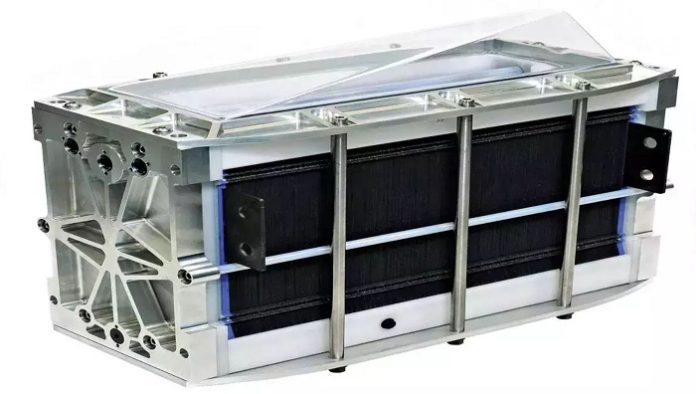A group of scientists at the International Advanced Research Centre for Powder Metallurgy and New Materials has developed a platinum-based electrocatalyst that they claim demonstrates comparable performance in fuel cells to other electrocatalysts available in the market today while offering more durability through superior corrosion resistance. With expected commercialization in the next quarter, it could be a breakthrough for indigenous fuel cell development paving the way for low-cost, durable fuel cells.
Fuel cells are electrochemical cells that convert the chemical energy of a fuel into electricity. It produces DC electricity from hydrogen with water as a byproduct. They have multiple applications including electric vehicles, which are powered by hydrogen. It has been published in the ‘International Journal of Hydrogen Energy, and a patent has been filed.
Mumbai-based Las Engineers and Consultants Pvt. Ltd (LECPL), engaged in designing and building plants for the chemical, pharmaceuticals, and allied industries, is in the process of acquiring ARCI know-how for manufacturing this electrocatalyst. It will be the industrial partner of ARCI for fuel cell component manufacturing.
This electrocatalyst showed comparable properties to the commercially available electrocatalyst in its performance in fuel cells and superior corrosion resistance and durability. It showed less than 20% loss, which is lower than the acceptable limits in the active surface area of the catalyst (40%).
The key step in the synthesis lies in the functionalization of carbon to enhance it to platinum interaction known as strong metal substrate interaction (SMSI), thereby increasing the durability of the electrocatalyst. This electrocatalyst showed comparable properties to the commercially available electrocatalyst and could enhance the lifetime of the fuel cell stack performance.
Although this technology has a lot of merits in green energy production, the main drawback comes from the huge cost incurred from importing the components for fabricating the device. In particular, the platinum-based electrocatalyst, imported because of the lack of suitable indigenous technologies for its manufacture, plays an important role in increasing durability and decreasing fuel cell costs.
R Gopalan, regional director, ARCI-Chennai, feels that the indigenous catalysts could reduce the dependence on imported electrocatalysts and would pave the way for Atma Nirbhar Bharat.
Raman Vedarajan, one of the inventors of the technology at the Centre for Fuel Cell Technology, ARCI-Chennai, said that this development is vital for ensuring made in India durable polymer electrolyte membrane fuel cell stacks.









